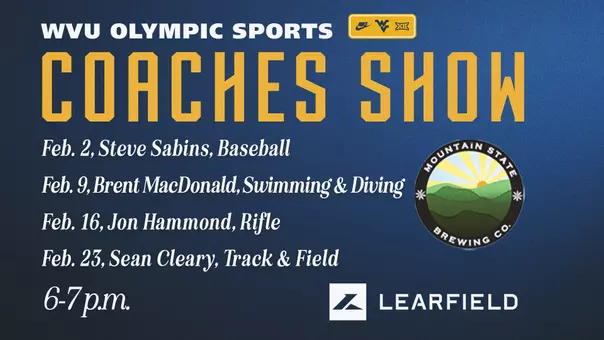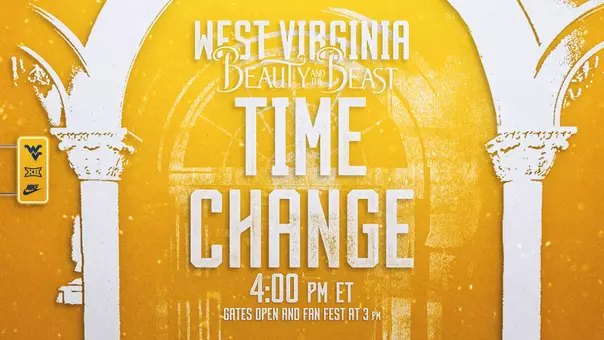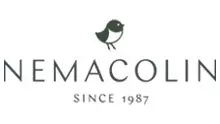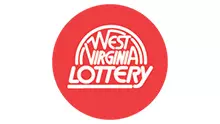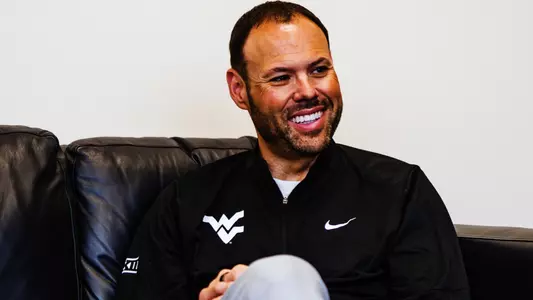
Photo by: WVU Athletic Communications
Money Matters, Part I
June 20, 2025 01:00 PM | General
Intercollegiate athletics have entered a historic new era after judge Claudia Wilken recently granted final approval to the $2.8 billion settlement of the class-action antitrust lawsuit House v. NCAA. Over the next three Fridays, we will be examining the immediate and future implications of the House Settlement and what it means for WVU athletics.
MORGANTOWN, W.Va. – On Friday, June 6, Senior District Judge Claudia Wilken granted final approval to the settlement of House v. NCAA anti-trust lawsuit filed in 2020 by former Arizona State swimmer Grant House and former TCU women's basketball player Sedona Prince.
The lawsuit combined other cases and challenged the NCAA's restrictions on revenue sharing related to media rights, seeking to allow schools to pay student-athletes for their name, image and likeness (NIL). The lawsuit argued the NCAA's restrictions on revenue sharing and NIL payments violated the Sherman Antitrust Act of 1890.
The recent settlement, approved by Wilken, ended the NCAA's long-standing amateurism model by allowing direct compensation to student-athletes of up to $20.5 million per institution beginning on July 1, 2025.
This amount will increase by 4% annually over the next 10 years.
In addition, $2.8 billion in back pay will be awarded to former Division I student-athletes who competed between 2016 and 2024 and did not receive NIL compensation.
New rules will limit the number of players permitted on team rosters and a new independent entity, the College Sports Commission LLC (CSC), will be tasked with enforcing rules related to revenue sharing, NIL deals and roster sizes. Former Major League Baseball executive Bryan Seeley has been hired to oversee the organization as its CEO.
There have already been challenges to the settlement, and more are likely.
Five days after Wilken's approval, eight female athletes filed an appeal arguing that the distribution of the settlement funds will violate Title IX because they believe female athletes will receive less money than men's basketball and football players.
Other legal challenges are looming, including disputes related to the value of NIL deals.
West Virginia University director of athletics Wren Baker, in a recent wide-ranging, sit-down interview with WVUsports.com, admits the recent settlement is only a beginning to the end.
"I think it's a great first step," he said. "Not everybody in the general public – the media and the attorneys who pontificate on social media - thinks what we have is unsustainable, but I think everybody who is actually involved in this sees this as unsustainable.
"When you have schools around the country such as Kentucky and Ohio State, schools in conferences that get the largest payouts and have massive budgets, that are incurring big deficits – Texas A&M is having to cut a bunch of staff – you can see that what we have is not sustainable. I think the House Settlement is a really good first step to building a model that's fair to student-athletes; that increases scholarships; that establishes a significant revenue share for student-athletes; and sets a model in place that is more sustainable."
 Baker, however, believes congressional involvement is also necessary.
Baker, however, believes congressional involvement is also necessary.
"I don't think this will be the end game," he explained. "There are going to have to be some other steps. Certainly, President (Donald) Trump has talked about establishing a commission to look at this, and there has been hearing after hearing in D.C. Do we get traction to actually put forth some meaningful legislation?
"If people care about college sports and people care about programs being able to offer a full complement of intercollegiate sports with experiences similar to what we currently have, especially in Olympic sports, we have to put in place a model that is sustainable."
Baker has had discussions with some of the state's Congressional delegation about this topic and he believes they are understanding and supportive of West Virginia University's position.
"We are starting to see some bi-partisan support for some considerations here," he said. "This isn't just about the power conference schools. Every state has schools, even if it is not in a power conference. They have schools that they take great pride in, or schools that represent the state's brand, so we need a model that is sustainable for the 350 schools, not just the 24 or 36 biggest in collegiate sports."
What the House Settlement means for West Virginia University, according to Baker, is some immediate clarity.
His visits with Mountaineer fans around the state frequently include questions about which entity to donate: The Mountaineer Athletic Club or the Country Roads Trust.
"We now have a system and an established amount of revenue that we can share," he said. "We know that we have real NIL that we can continue (to distribute), but now here is the process that it must go through. (Supporters) don't have to worry about, 'Do I give here, or do I give there? Does my gift count toward my donation requirement for my seats?'
"They can also do NIL deals directly with student-athletes, and I think our student-athletes bring a lot of value," Baker continued. "If you want to advertise in the state of West Virginia, there is no better partner to do that than WVU athletics. By far, we have the biggest brand and bring the most attention to the state.
"If you want a spokesperson for WVU athletics, it's most likely going to be one of our student-athletes. I think it makes a lot of sense for people to continue to do those NIL deals with student-athletes, but now there are really two pathways that fans can help us rather than these multiple pathways of where they have to figure out how they can best be an asset."
Baker views the newly created College Sports Commission as an independent means of regulating the new system. In the past, the NCAA enforcement arm was comprised of peers investigating peers and the process was often viewed as cumbersome and inconsistent.
Baker believes having an independent entity enables the CSC some additional flexibility from an enforcement standpoint.
"If we're going to give the House Settlement any kind of chance (having oversight is important)," Baker explained. "Every coach you talk to says they want a system in place, and then they immediately pivot to trying to game the system.
"I think you would be hard-pressed to find anyone who would defend the investigative and regulatory arm of the NCAA. It took forever; it was peer reviewed; it lacked teeth at times, and certainly, the NCAA could have done what the CSC is about to do, but at some point, there is a crisis of confidence from the general public, from the coaches and from administrators.
"I believe this is more of a professional model and structure, and it's something that is really important, and I'm excited about. I'm also excited that they hired somebody who came from the professional ranks."
Regarding team roster sizes, Baker maintains roster compositions and travel squads have already been in place for years based on competitive factors in each sport.
That's different than scholarship limitations.
"The scholarship limits have been removed because there legally wasn't a justifiable way, and that would have been the next (court) challenge and, in fact, it's already starting to work its way through the courts," he said. "If you were to say green, yellow or red for issues that would run afoul of antitrust, rosters are kind of in the green.
"Where we've ultimately landed is we're going to set a roster, and it's going to be done more for competitive reasons, but within that it's really at the institutional discretion how many scholarships they want to allocate," Baker added. "In reality, let's take men's and women's basketball. Prior to the House Settlement, the men's basketball scholarship limit was 13 and women's was 15. Well, most of the time both are probably going to end up with 12 or 13 scholarship players anyway."
He continued.
"You can only play so many, and the more of them you have sitting on the bench discontent, the more problems you have. You want to leave room for walk-ons anyway, and if you start extending your roster out to 17, 18 or 20 players, you have less time to spend with each one.
"I don't know that we are going to look at increasing scholarships in men's and women's basketball because, really, they are kind of where they need to be."
Despite having some clarity, the House Settlement does not fully address the collective bargaining aspect of the process.
That's the slippery slope that will likely require congressional intervention.
"I think the criticism of the system that we have developed is that student-athletes didn't have a voice in it, but I think the truth of the matter is, if they were employees and we were collectively bargaining, I'm not sure they would have walked away with as many benefits as they are walking away with in this settlement," he pointed out. "The plaintiff's counsel was really good at fighting for the student-athletes.
"There is a segment of athletic directors that would be willing to view student-athletes as employees, but it's a really tough precedent for campuses, because then you start running the risk of, 'Okay, what about the band students or the theater students and all these different clubs and organizations you have?' What ends up happening to club and rec sports?"
Baker recalled his collegiate experiences to make his point.
"I spent very little time contemplating what I read in a book or what I learned in a seminar," he said. "I think about the experiences I had. Yes, the college experience is about what you discover in textbooks, but it's really more about what you find within yourself. What's your calling? What's your passion? What's your purpose? What do you want to do with your life?"
Baker sees an employment model diminishing this experience for all students.
"Why are you coming to college? You are coming to college because of the experiences and the relationships you make, and the development that you experience as a person going to a new place and being on your own," he explained. "If you are diminishing all that, what's the point?
"If we can find a way in some kind of federal bill to have a collective bargaining-type of conversation that doesn't require employment, which doesn't currently exist, that could ultimately help us get there."
Next Friday, we will examine the House Settlement's $20.5 million per-school allocation, and how that impacts West Virginia University's current athletics' budget.
MORGANTOWN, W.Va. – On Friday, June 6, Senior District Judge Claudia Wilken granted final approval to the settlement of House v. NCAA anti-trust lawsuit filed in 2020 by former Arizona State swimmer Grant House and former TCU women's basketball player Sedona Prince.
The lawsuit combined other cases and challenged the NCAA's restrictions on revenue sharing related to media rights, seeking to allow schools to pay student-athletes for their name, image and likeness (NIL). The lawsuit argued the NCAA's restrictions on revenue sharing and NIL payments violated the Sherman Antitrust Act of 1890.
The recent settlement, approved by Wilken, ended the NCAA's long-standing amateurism model by allowing direct compensation to student-athletes of up to $20.5 million per institution beginning on July 1, 2025.
This amount will increase by 4% annually over the next 10 years.
In addition, $2.8 billion in back pay will be awarded to former Division I student-athletes who competed between 2016 and 2024 and did not receive NIL compensation.
New rules will limit the number of players permitted on team rosters and a new independent entity, the College Sports Commission LLC (CSC), will be tasked with enforcing rules related to revenue sharing, NIL deals and roster sizes. Former Major League Baseball executive Bryan Seeley has been hired to oversee the organization as its CEO.
There have already been challenges to the settlement, and more are likely.
Five days after Wilken's approval, eight female athletes filed an appeal arguing that the distribution of the settlement funds will violate Title IX because they believe female athletes will receive less money than men's basketball and football players.
Other legal challenges are looming, including disputes related to the value of NIL deals.
West Virginia University director of athletics Wren Baker, in a recent wide-ranging, sit-down interview with WVUsports.com, admits the recent settlement is only a beginning to the end.
"I think it's a great first step," he said. "Not everybody in the general public – the media and the attorneys who pontificate on social media - thinks what we have is unsustainable, but I think everybody who is actually involved in this sees this as unsustainable.
"When you have schools around the country such as Kentucky and Ohio State, schools in conferences that get the largest payouts and have massive budgets, that are incurring big deficits – Texas A&M is having to cut a bunch of staff – you can see that what we have is not sustainable. I think the House Settlement is a really good first step to building a model that's fair to student-athletes; that increases scholarships; that establishes a significant revenue share for student-athletes; and sets a model in place that is more sustainable."
 Baker, however, believes congressional involvement is also necessary.
Baker, however, believes congressional involvement is also necessary."I don't think this will be the end game," he explained. "There are going to have to be some other steps. Certainly, President (Donald) Trump has talked about establishing a commission to look at this, and there has been hearing after hearing in D.C. Do we get traction to actually put forth some meaningful legislation?
"If people care about college sports and people care about programs being able to offer a full complement of intercollegiate sports with experiences similar to what we currently have, especially in Olympic sports, we have to put in place a model that is sustainable."
Baker has had discussions with some of the state's Congressional delegation about this topic and he believes they are understanding and supportive of West Virginia University's position.
"We are starting to see some bi-partisan support for some considerations here," he said. "This isn't just about the power conference schools. Every state has schools, even if it is not in a power conference. They have schools that they take great pride in, or schools that represent the state's brand, so we need a model that is sustainable for the 350 schools, not just the 24 or 36 biggest in collegiate sports."
What the House Settlement means for West Virginia University, according to Baker, is some immediate clarity.
His visits with Mountaineer fans around the state frequently include questions about which entity to donate: The Mountaineer Athletic Club or the Country Roads Trust.
"We now have a system and an established amount of revenue that we can share," he said. "We know that we have real NIL that we can continue (to distribute), but now here is the process that it must go through. (Supporters) don't have to worry about, 'Do I give here, or do I give there? Does my gift count toward my donation requirement for my seats?'
"They can also do NIL deals directly with student-athletes, and I think our student-athletes bring a lot of value," Baker continued. "If you want to advertise in the state of West Virginia, there is no better partner to do that than WVU athletics. By far, we have the biggest brand and bring the most attention to the state.
"If you want a spokesperson for WVU athletics, it's most likely going to be one of our student-athletes. I think it makes a lot of sense for people to continue to do those NIL deals with student-athletes, but now there are really two pathways that fans can help us rather than these multiple pathways of where they have to figure out how they can best be an asset."
Baker views the newly created College Sports Commission as an independent means of regulating the new system. In the past, the NCAA enforcement arm was comprised of peers investigating peers and the process was often viewed as cumbersome and inconsistent.
Baker believes having an independent entity enables the CSC some additional flexibility from an enforcement standpoint.
"If we're going to give the House Settlement any kind of chance (having oversight is important)," Baker explained. "Every coach you talk to says they want a system in place, and then they immediately pivot to trying to game the system.
"I think you would be hard-pressed to find anyone who would defend the investigative and regulatory arm of the NCAA. It took forever; it was peer reviewed; it lacked teeth at times, and certainly, the NCAA could have done what the CSC is about to do, but at some point, there is a crisis of confidence from the general public, from the coaches and from administrators.
"I believe this is more of a professional model and structure, and it's something that is really important, and I'm excited about. I'm also excited that they hired somebody who came from the professional ranks."
Regarding team roster sizes, Baker maintains roster compositions and travel squads have already been in place for years based on competitive factors in each sport.
That's different than scholarship limitations.
"The scholarship limits have been removed because there legally wasn't a justifiable way, and that would have been the next (court) challenge and, in fact, it's already starting to work its way through the courts," he said. "If you were to say green, yellow or red for issues that would run afoul of antitrust, rosters are kind of in the green.
"Where we've ultimately landed is we're going to set a roster, and it's going to be done more for competitive reasons, but within that it's really at the institutional discretion how many scholarships they want to allocate," Baker added. "In reality, let's take men's and women's basketball. Prior to the House Settlement, the men's basketball scholarship limit was 13 and women's was 15. Well, most of the time both are probably going to end up with 12 or 13 scholarship players anyway."
He continued.
"You can only play so many, and the more of them you have sitting on the bench discontent, the more problems you have. You want to leave room for walk-ons anyway, and if you start extending your roster out to 17, 18 or 20 players, you have less time to spend with each one.
"I don't know that we are going to look at increasing scholarships in men's and women's basketball because, really, they are kind of where they need to be."
Despite having some clarity, the House Settlement does not fully address the collective bargaining aspect of the process.
That's the slippery slope that will likely require congressional intervention.
"I think the criticism of the system that we have developed is that student-athletes didn't have a voice in it, but I think the truth of the matter is, if they were employees and we were collectively bargaining, I'm not sure they would have walked away with as many benefits as they are walking away with in this settlement," he pointed out. "The plaintiff's counsel was really good at fighting for the student-athletes.
"There is a segment of athletic directors that would be willing to view student-athletes as employees, but it's a really tough precedent for campuses, because then you start running the risk of, 'Okay, what about the band students or the theater students and all these different clubs and organizations you have?' What ends up happening to club and rec sports?"
Baker recalled his collegiate experiences to make his point.
"I spent very little time contemplating what I read in a book or what I learned in a seminar," he said. "I think about the experiences I had. Yes, the college experience is about what you discover in textbooks, but it's really more about what you find within yourself. What's your calling? What's your passion? What's your purpose? What do you want to do with your life?"
Baker sees an employment model diminishing this experience for all students.
"Why are you coming to college? You are coming to college because of the experiences and the relationships you make, and the development that you experience as a person going to a new place and being on your own," he explained. "If you are diminishing all that, what's the point?
"If we can find a way in some kind of federal bill to have a collective bargaining-type of conversation that doesn't require employment, which doesn't currently exist, that could ultimately help us get there."
Next Friday, we will examine the House Settlement's $20.5 million per-school allocation, and how that impacts West Virginia University's current athletics' budget.
Oklahoma State Recap
Sunday, February 22
Ross Hodge | TCU Postgame
Sunday, February 22
Post Game Press Conference | Oklahoma State
Saturday, February 21
United Bank Playbook: TCU Preview
Friday, February 20


